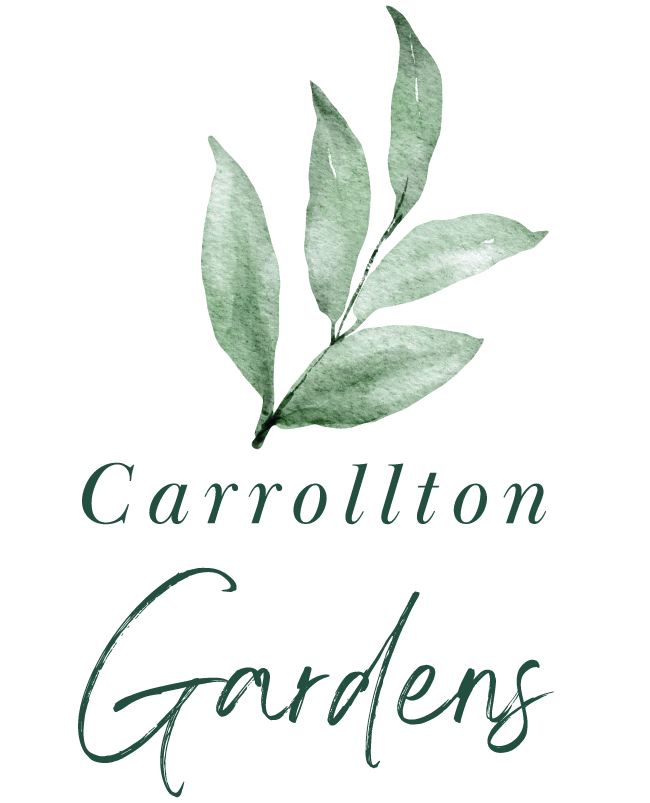Assisted Living in North Texas Blossoms at Carrollton Gardens
North Texas assisted living options are endless and overwhelming. Use this guide if you are just beginning your search for senior care in Dallas, Plano, or Frisco.
At Carrollton Gardens, we provide individualized assisted living and memory care.
In this guide explore:
- The differences in senior care of North Texas
- Tips and suggestions for visiting assisted living and memory care communities
- The benefits of assisted living and memory care services
- The cost of assisted living in Texas
Finding Senior Care in the State of Texas
Searching for the right senior care community in Texas can be a crucial decision for you or your loved one. There is a difference between residential care centers, nursing homes, skilled nursing facilities, and dementia care in the Lone Star State.

Residential Care Centers
Residential care centers, also known as assisted living facilities, are designed for seniors who need assistance with activities of daily living but do not require the specialized care provided in nursing homes.
These communities and personal care homes offer a range of services, such as help with medication management, bathing, dressing, and meal preparation.
Per regulations in Texas, residential care centers are classified into Type A and Type B facilities.
Type A facilities are for individuals who are physically and mentally capable of evacuating the facility without assistance. These facilities may offer more independent living options and fewer specialized services.
Type B facilities are for individuals who may require staff assistance for evacuation and have mobility limitations. They provide more comprehensive care and can accommodate residents with certain mental or physical impairments.
Nursing Homes and Skilled Nursing Facilities
Nursing homes, also known as skilled nursing facilities or SNFs, provide round-the-clock care for individuals with more complex medical needs. These facilities have a higher staff-to-resident ratio and offer skilled nursing services, including rehabilitation and specialized medical care.
Rehabilitation in Nursing Homes
Nursing homes often have dedicated rehabilitation services for individuals recovering from surgery, illness, or injury. This can include physical therapy, occupational therapy, and speech therapy. Nursing home rehabilitation programs aim to improve mobility, restore functional abilities, and enhance overall well-being.
Wound Care and Chronic Conditions in Nursing Homes
Nursing homes are equipped to handle residents with chronic conditions such as diabetes, heart disease, or respiratory infections. They have trained medical staff who can provide specialized care, including wound care management for individuals with chronic wounds. Nursing homes also collaborate with healthcare professionals to monitor and manage chronic conditions effectively.
Memory Care in Texas: Meeting the Growing Need
Memory care is a specialized form of senior care designed for people with Alzheimer’s, dementia, or other forms of memory impairment. As the aging population grows and the prevalence of dementia increases, the need for Texas memory care has also risen.
Over ten percent of the nation’s 65+ population has Alzheimer’s. It is the most common form of dementia. The statistic includes at least 400,000 seniors in Texas.
Memory care communities provide a secure and supportive environment specifically tailored to the unique needs of individuals with memory loss. These communities offer:
- Specialized programming
- Structured routines
- Memory-enhancing activities
- Social engagement
- Compassionate care
- Managing behavioral changes
- Stimulating environment
Visiting Assisted Living Communities: Tips and Suggestions
When visiting assisted living communities, it’s essential to have a clear understanding of your needs and preferences. These communities are designed to support and assist seniors who may need help with activities of daily living but do not require specialized memory care.
Here are some tips to make your visits more productive:
1. Plan Ahead. Schedule appointments to ensure staff members have enough time to provide a proper tour. Return at another time to see if the community changes at different times.
2. Observe the Environment. Pay attention to the cleanliness and overall atmosphere of the community. Look for well-maintained common areas, comfortable living spaces, and pleasant outdoor areas.
3. Interact with Residents and Staff. Take the opportunity to talk to current residents and staff members. Their experiences and insights can provide valuable information about the community’s culture and the quality of care provided.
4. Ask Questions. Inquire about services, amenities, activities, and the level of care provided. Understanding the community’s offerings will help determine if they align with your needs and preferences.
5. Trust Your Instincts. While facts and figures are important, trust your gut feeling about the community. It may be the right fit if it feels like a warm and inviting place where you or your loved one would be well-cared for and comfortable.
Visiting Memory Care Communities: Tips and Suggestions
When visiting memory care communities, it’s essential to consider the specialized needs of individuals with dementia. These communities should provide a signature memory care program all team members follow.
Here are some tips to make your visits more informative:
1. Plan Ahead. Schedule appointments specifically for memory care tours to ensure the dementia care staff members can provide detailed information and answer your questions.
2. Observe the Environment. Look for secure areas with features designed to prevent wandering and ensure the safety of residents. Pay attention to cues that promote cognitive engagement, such as memory boxes or visual cues.
3. Interact with Residents and Staff. Join an activity if possible and engage with current residents and staff members. Ask about specialized programs, therapies, and strategies to support residents with memory impairments.
4. Ask Questions. Understanding how the community addresses the unique needs of individuals with memory loss will help you make an informed decision. Inquire about:
- The staff-to-resident ratio
- Specialized training for associates
- The overall philosophy of memory care in the community
5. Trust Your Instincts. Pay attention to how the community feels. A supportive memory care community should provide a calm and structured environment where residents are treated with dignity, compassion, and respect.
The Benefits of a Community Offering Both Assisted Living and Memory Care Services
Carrollton Gardens stands out as a community offering assisted living and memory care services. This combination provides several benefits for seniors and their families.
Assisted living and memory care communities provide an easier transition if a resident’s needs change. Familiarity with the team, environment, and routines can alleviate stress and provide continuity of care.
Offering assisted living and memory care services within the same community fosters a sense of togetherness and cohesion. Residents can interact with peers with similar experiences, creating a supportive and understanding social network.
At Carrollton Gardens, our commitment to providing personalized care extends to our assisted living and memory care services. We understand the evolving needs of seniors and are dedicated to creating an environment that promotes well-being and dignity.
Paying for Assisted Living in Texas
The cost of assisted living in Texas can vary depending on several factors, such as location, size of the community, and level of care provided.
The Genworth Cost of Care Survey says the average cost of assisted living in Texas is $3,998 per month. The price in the Dallas, Texas area is $4,195.
Generally, smaller towns and suburbs offer more affordable options than big cities like Dallas and Fort Worth. This feature is particularly true for communities like Carrollton Gardens, which provide exceptional care and services at competitive prices.
Exploring Carrollton Gardens for Seniors in Plano, Farmers Branch, and Frisco, TX
Seniors and their family members from North Texas find our community ideal for our central location.
Carrollton Gardens stands out as a community that prioritizes personalized care services and a vibrant lifestyle. Contact us today to learn more about our services and to schedule a visit.

